#celtic studies
Text
I'm having a citation crisis and could use some advice.
I have the choice to use my department's stylesheet (designed for medieval studies but primarily for historians; requires manual citations and is also a huge pain), MHRA (not designed for medieval studies; can use Zotero), or MLA (I think this is in-text citations and thus not suitable for my needs; can use Zotero).
Whatever I choose, I will be doing the bulk of my footnotes manually, because I have a lot of abbreviated textual references that look like this

and this is, frankly, not something that referencing software can handle, and writing all of these out in full would double my wordcount and be completely unreadable.
Nevertheless, I would ideally like to use Zotero for my initial footnotes, if only because it'll make creating a bibliography a lot easier, and encourage me to ensure everything's been added to my library for later reference so I don't have to spend hours tracking things down later on. True, I have a large number of non-digital materials that have to be manually inputted, so this is not wildly convenient, but doing that now will make it easier than trying to find the publication info for a library book that's out on loan to somebody else at the last minute.
However. While this is fine for secondary material/articles etc, I have no idea how to go about setting up all my primary texts in Zotero. I need to distinguish between those which are only edited, and those which are edited and translated, in order to make it clear which translations are my own. But while it's easy enough to say (ed.) or (ed. and trans.) when manually citing, I ... don't know how to do that using Zotero?
Because the only way I can figure out how to list both roles is to list the person twice:

But obviously this is unsatisfactory since your footnote ends up reading ed. O'Rahilly, C., trans. O'Rahilly, C., and then you have to manually adjust them all anyway.
There seems to be no way to create a single role of 'editor and translator', and if I don't include that information, it's going to be a pain later. It essentially doesn't distinguish between a modern edited book and an edited medieval text, but those are in fact very different things.
UGH. I don't know what to do. The only stylesheet I have access to that actually provides information on how to handle medieval sources is the department one, but it's a) the worst, and b) genuinely just such a bad experience to interact with, like, it's essentially an essay about references with examples rather than a proper stylesheet.

Go away, this is not the time, I don't care, just tell me how to format this!
#gradblr#medieval studies#celtic studies#finn is not doing a phd#this is going to take longer than writing this entire portfolio did
20 notes
·
View notes
Text
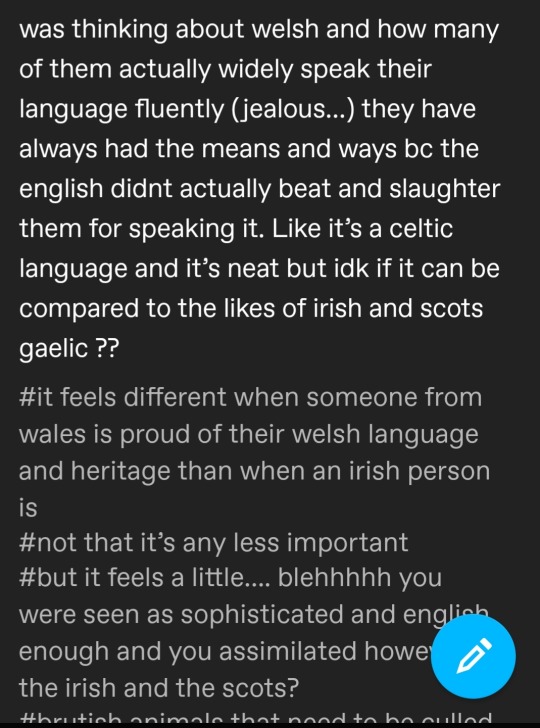
I'd like to preface this with that this is a screenshot of a post I saw a few days ago in the #welsh tag and that the OP has since deleted this post, but the sentiment is something I'd like to address since I see a lot of parallels with this kind of thinking in other contexts, such as in LGBTQIA+ rights conversations.
So, the most obvious elephant in the room is the idea that Welsh is super widely spoken in Wales now and that it isn't in as much danger as other Celtic languages. This idea is wishful thinking at best and erases the very real danger that Welsh is in and that it could be lost just as easily as Irish or Scottish Gaelic. Cornish (which is related to Welsh) actually did die out and has had to be revived. To make a metaphor out of this, we classify languages on a scale of non-threatened to endangered in a similar way to how we classify species.
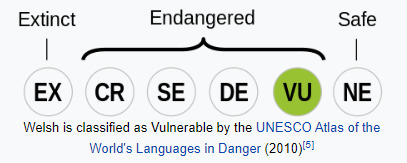
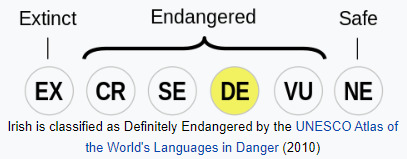
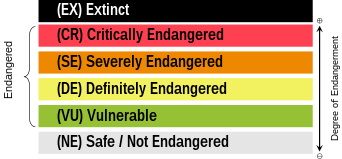
Here are the statuses of Welsh and Irish as of 2010 (above) and the statuses of Lions and Tigers (below).

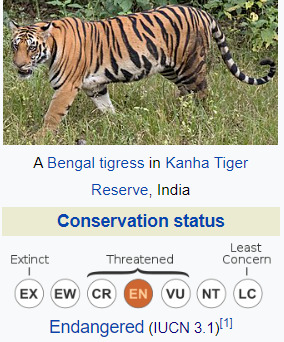
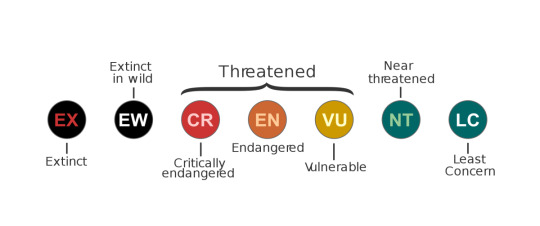
On paper tigers are more 'in danger' than lions. But that does not mean that lions are suddenly not in danger at all. The little bracket above CR, EN and VU labels all of these classifications as threatened. It isn't (and definitely shouldn't) be a competition of 'who is most in danger' because you do not want the thing you care about (whether it be a species or a language) to be in danger.

To come back to the original screenshot "they* [Welsh speakers] have always had the means and the ways because the English didn't beat or slaughter them for speaking it"- on the most basic of levels, this is just incorrect. The Welsh Not was a wooden token hung around schoolchildren's necks if they spoke Welsh in school. If someone else spoke Welsh the Not would be hung around their neck. At the end of the school day, whoever was wearing the Not would be beaten and caned by their teachers. I needn't go into much detail but there have been concerted efforts to beat Welsh out of schoolchildren. With the lions vs tigers metaphor, making the claim Welsh speakers have never been beaten for speaking Welsh because they always had the means and ways, while Irish speakers were beaten and never had the means or ways is like claiming poachers have never shot lions, only tigers. Bottom line is, lions and tigers are both victim to poaching and both species have suffered as a result. Similarly, Welsh and Irish have both suffered language loss and both need conservation efforts in order to survive.
(*sidenote- the consistent use of 'them' and 'they' in the original post is definitely indicative of a 'us vs them' sentiment which is a deeply unhelpful attitude to have when it comes to endangered languages and the Celtic languages in particular)
I see parallels with LGBTQIA+ rights in this situation. When equal marriage came in for gay and lesbian couples in the UK in 2014, many allies began to act like gay rights had now been achieved and that gay issues had been done, they're solved. Except, they really weren't (and aren't). Progress has been made in Wales and undeniably Welsh is doing the best out of the living Celtic languages. But that doesn't mean Welsh has been saved or that full equality for Welsh speakers has been achieved. It very much hasn't. The sentiment of the post in the screenshot is not conducive to helping Irish or Scottish Gaelic. Putting down Welsh speakers and erasing Welsh-language history will not save Irish or Scottish Gaelic. Pretending Welsh has had it easy in some kind of lap of luxury is a deeply harmful and bogus claim.
I'll address the tags under the cut as this post is getting long.
To address the tags, personal feelings ≠ an accurate reading of a situation. Nor is it praxis, for that matter. Why is pride in Welsh different/less good than pride in Irish? Is it the assumed proximity to England? If so, that's a terrible claim to make. Not only that, but Scotland is also next to England- does that make pride in Scottish Gaelic the same as pride in Welsh according to this metric? It's a ludicrous thing to say and deeply insensitive to the needs of Scottish Gaelic and Welsh speakers, who cannot help any current or former proximity to England.
Additionally, proximity to England ≠ worse. I know it's a popular internet joke to hate on England because of English attempts to eradicate the Celtic languages, but when the joke becomes praxis, it does not help. England ≠ a place devoid of Celtic languages either. Many English counties near the Welsh border actually have communities of Welsh speakers, such as Oswestry (Croesoswallt) in Shropshire. Cornwall is also home to many speakers of revived Cornish. It does a disservice to Celtic speakers in England to insinuate that proximity to England taints or corrupts them somehow. This is how ethnonationalism starts and we ain't about that.
And "#it feels a little.... blehhhhh you were seen as sophisticated and english enough and you assimilated however the Irish and the Scots? #brutish animals that need to be culled". So, this is arguably one of the worst things to say about a Celtic language- or any threatened language in general. First of all, the 'you were seen as' - 'you' is very telling. The switch from 'them', 'they' to 'you' indicates that this sentiment is aimed at Welsh speakers directly. This was likely a subconscious thing that OP wasn't thinking about when they wrote this. But it does indicate unhealthy feelings of jealousy and bitterness unfairly directed at Welsh speakers, who are also struggling. This righteous anger at the decline of Irish and Scottish Gaelic would be better directed at efforts to help promote those languages- some useful things to get involved with are LearnGaelic, similar to DysguCymraeg but for Scottish Gaelic or supporting channels such as Irish channel TG4 by watching their programmes.
The idea that Welsh speakers were or are 'sophisticated and english enough' is insulting and carries with it a lot of baggage of how any of these assumptions came about. Welsh speakers were definitely not seen as sophisticated. Where Welsh was 'tolerated', it was treated as a curiosity, a relic of a bygone age. Classic museification which all Celtic languages and cultures suffer from as well. Welsh was not tolerated in any legal sense since 1535- with English becoming the only valid administrative language and the language of Welsh courts after England annexed Wales into its Kingdom. Monolingual Welsh speakers suddenly had no access to any legal representation, unless they learned English. This is no voluntary assimilation- it is an act of survival for many speakers of minoritised languages to 'assimilate' into the dominant culture, or else risk losing access to legal security and other kinds of infrastructure. You need only ask any non-native English speaker living in an Anglophone country what that process is like. Welsh people did not see English incursion as an opportunity to become 'sophisticated and english enough', they had to assimilate in order to survive.
The "Irish and the Scots? #brutish animals that need to be culled" is also painfully misrepresenting a very complex social and political process that unfolded over the span of hundreds of years. The phrasing itself of 'brutish animals that need to be culled' speaks to righteous anger at the damage done to these languages and cultures, but it reinforces negative stereotypes about the Irish and Scots themselves. It also is more complicated than a simple English hatred of anything non-Anglo, since the English conception of particularly the Irish changed a lot over the centuries. It was (and still is) rarely consistent with itself. See: the enemy is both strong and weak. The very earliest Celticists were by and large, Anglos or French.
Ernest Renan (1823-1892) for example, was an early French Celticist who published La Poésie des races celtiques (Poetry of the Celtic Races- English translation) in which he says:
"... we must search for the explanation of the chief features of the Celtic character. It has all the failings, and all the good qualities, of the solitary man; at once proud and timid, strong in feeling and feeble in action, at home free and unreserved, to the outside world awkward and embarrassed. It distrusts the foreigner, because it sees in him a being more refined than itself, who abuses its simplicity. Indifferent to the admiration of others, it asks only one thing, that it should be left to itself. It is before all else a domestic race, fitted for family life and fireside joys. In no other race has the bond of blood been stronger, or has it created more duties, or attached man to his fellow with so much breadth and depth"
Yeah. This guy (unsurprisingly) was a white supremacist. Note that this sentiment is being applied to all people considered Celtic by Renan- Irish, Welsh, Breton, Scottish, Cornish, Manx etc. None unscathed by the celtophobia of the day. In this period, Celticity was romanticised (yet disparaged at the same time). It is less 'brutish animals' and more 'archaic, time-frozen peoples' in this period. Of course, 'brutish animals' attitudes towards Celticity did still exist, but it is disingenuous to act as if it was this attitude alone which drove English celtophobia. Like many things, it is always more complicated and never clear cut as it might seem.
I'll bring this to a close shortly, but returning to OP's suggestion that the Welsh assimilated and the Scots and Irish did not, is also incorrect in that some Scots did have to assimilate to survive as well. The Statutes of Iona (1609) required Scottish Gaelic speaking Highland chiefs to send their sons away to be educated in Scots and/or English in Protestant schools. Many did as the statutes required, which led to further language loss in the Highlands of Scottish Gaelic. These are acts of survival- and not ones always taken willingly.
This has been a long post but it's one which I felt I wanted to address. There's no need for infighting between speakers of Celtic languages over who has it worse. There isn't any answer to that question, nor is it a good use of time or energy. All in all, the Celtic languages have suffered greatly over the years and its only just now that some of them are turning a corner. If you care about these languages, put your energy into something good. Only through active work will these languages be saved for generations to come.
#long post#lukes originals#cymraeg#gaelige#gaidhlig#Irish#Welsh#Scottish Gaelic#politik#not dictionary related#Celticist#Celtic Studies#This took a lot of energy to write so if you found this post useful please consider reblogging
1K notes
·
View notes
Text
Irish, Welsh and Scottish Gaelic speakers, I need your help! 🇮🇪🏴🏴
For a piece of academic writing I am working on right now, I was wondering if in the context of those three languages, you have positive or negative examples of:
1) The presence of non-standard dialects digitally or in the media (any content creator you know, any regular speakers on the radio that actively uses a non-standard dialect, or on the contrary, you only encounter standard Irish/Welsh/Gaelic. If you have any example of non-standard writing too, for example in the printed press, I am all ears)
2) Do you speak and/or write a non-standard dialect and have been looked down upon for it by other speakers? If yes what dialect and in what context
3) What do you think about purification practices in which loan-words from English are replaced by new words? Which words do you use? If you study the language formally, which are taught to you?
Thank you, and please reblog!
- A grateful Celtic student
#Irish#Gaelic#Scottish Gaelic#Welsh#gaeilge#cymraeg#Gàidhlig#Ireland#Scotland#Wales#Celtic languages#Minroty languages#Linguistics#Standardisation#Celtic#Celtic studies#Languages#Alba#Mostly for native speakers but also non-native fluent speakers that regularly interact with the language
61 notes
·
View notes
Text
Not the University of Toronto rebranding their Celtic Studies program to "Irish and British Studies"

62 notes
·
View notes
Text
forget the lowercase fanfic titles i’m so excited to see the two tiered creative titles that english lit, art history, mythology, and celtic studies students write now that eat your young is out 💀
#HWERE WAS THIS SOMG WHEN I WROTE LIKE THREE ESSAYS ON JOHNATHAN SWIFT#a modest proposal#i speak#hozier#eat your young#art history#english lit student#english literature#english lit major#english lit memes#celtic#celtic studies#food studies#mythology#johnathan swift#saturn devouring his son#academia
63 notes
·
View notes
Text
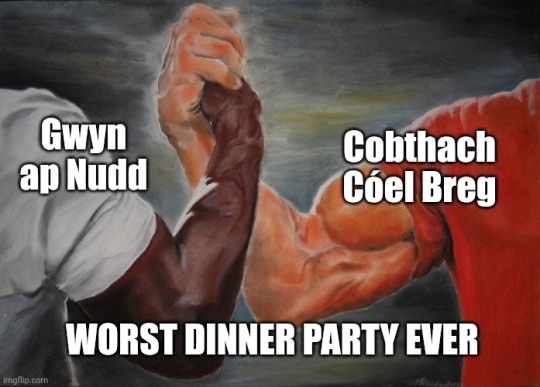
#gwyn ap nudd#medieval literature#medieval welsh#medieval irish#welsh mythology#celtic studies#something something a hearty meal#i can't believe i'm awake thinking of heart puns when aorta be sleeping 🥁#thank you i'll be here all week#(good night for real though and sorry for spamming you all tonight 😘)
10 notes
·
View notes
Text
A History of Gaelic Script, A.D. 1000-1200?
Does anyone happen to know where I could access a copy of Dr. Elizabeth Duncan's PhD thesis "A History of Gaelic Script, A.D. 1000-1200" online somewhere? I would write to her, but she seems not to have an online presence anywhere.
#gaelic#irish#irish mythology#gaelpol#paleography#manuscript studies#gaelic paganism#gaelic polytheism#gaelic literature#celtic#celtic studies
8 notes
·
View notes
Text
ngl something about people calling the french performance "satanic" doesn't sit right with me
#it was celtic#completely different religion and culture#that predates christianity completely#eurovision#esc 2022#france#celts#celtic studies#celtic religion
259 notes
·
View notes
Text
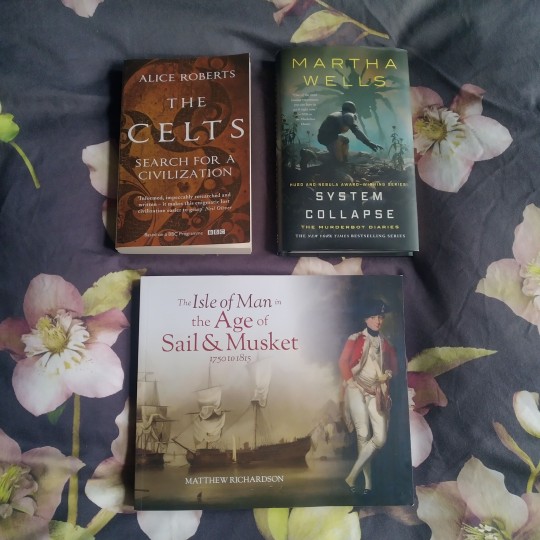
💐 March books 🎉
Now that I'm back... I can post this and it's only two weeks late. This is fine.
🔹 The Celts: Search for a Civilisation, Alice Roberts. 4⭐
This is actually quite a good introduction and admits that there's a lot of debate around what the term means etc. And there is a lot of debate! Among other things, she interviews and agrees with the guys who propose "Celtic from the West", which was very much the fringe view back when I was an academic, but she does also point towards an opposing source so you can look it up yourself. That most people won't is a shame. She also manages to insult me personally so I'm actually mad that the rest of it is decent!
🔹 System Collapse, Martha Wells. 4⭐
Murderbot my beloved ♥️♥️♥️
🔹 The Isle of Man in the Age of Sail and Musket, Matthew Richardson. 3⭐
The content is fine and all, but who tf chose this format? It's not a coffee table book! You're meant to read it! Why is it landscape? So floppy!
#this month in books#your local lapsed mediaevalist/celticist was side eyeing that first one ngl#but it turned out reasonable#idk how to tag it though#celtic studies#murderbot#isle of man#age of sail
3 notes
·
View notes
Text
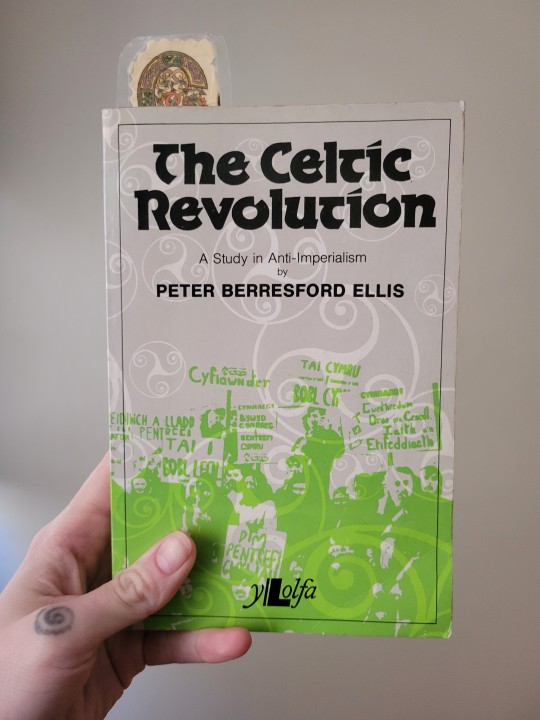
just finished this a few days ago and it's my new favorite I think
there's a chapter dedicated to each of the 6 'celtic nations', which the author defines as any nation whose native language is a celtic one (Éire, Alba, Cymru, Kernow, Mannin, and Breizh), and their individual struggles against colonialism and a brief history of their native languages and efforts made to revive them. then follows chapters on the diasporas of these countries, unity between the celtic nations, and a brief look at nationalism/nationalist movements from each.
in the introduction, the author makes this statement which is reiterated and proven in the rest of the book: "I write as someone who fully supports Celtic cultural, political and economic independence. Nor do I disguise the fact that I am a socialist", saying that writing unbiased historical works is a myth and authors should be up front about their biases from the start.
22 notes
·
View notes
Text
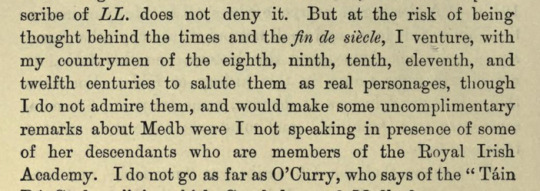
"yeah Medb was real, but also she sucked. not gonna say that out loud in case I get blacklisted from Celtic Studies though" -- Edmund Hogan in 1892, apparently??
68 notes
·
View notes
Text
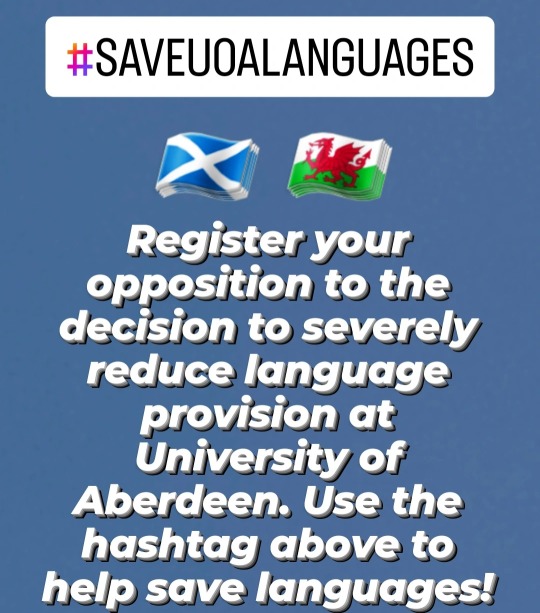
I'm making my opposition to the proposal to severely reduce language provision at the University of Aberdeen known - Scottish Gaelic, an endangered Celtic langauge, is one of the languages at risk of being cut. This would do immense damage to the language revitalisation effort. @uniofaberdeen must reverse this decision and commit to protecting Gaelic and other languages in their institution.
If you feel the same way, you're encouraged to make more posts and stories about the issue to show the University of Aberdeen just how much this decision is frowned upon. Use the hashtag #saveuoalanguages in your posts to get the word out about this.
I'll be travelling tomorrow and wish I could do more right now. But together we can make it known just how unpopular this decision is.
#university of Aberdeen#saveuoalanguages#scottish gaelic#gaidhlig#endangered languages#celtic languages#celtic#gaelic#scotland#scottish#language revitalization#cymblr#celtic studies
124 notes
·
View notes
Text
More than 4 years ago I was lying on my bed in Northern France listening to Mairead Nan Cuiread by Tannas. I was thinking how beautiful that song was, how intrinsically musical and rhythmic the language sounded, how enchanting it would be to learn more about the Gaels. I wrote my application to the University of Edinburgh listening to it. Today in my last year of uni my Celtic teacher contacted us to ask us to go over Mairead Nan Cuiread as it is the waulking song we will be studying tomorrow. We have gone full circle. I couldn't be more grateful
22 notes
·
View notes
Text
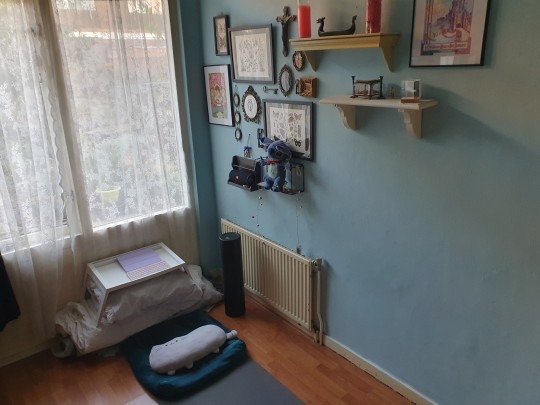



I recently learned about 'furniture free living' and decided to give it a try. Last night I slept on the floor and I must say it was actually really nice. Today I decided to make a floor desk setup and my cat Mei Mei seems to enjoy it so far. Anyone with experience have any tips?
#furniture free living#floor desk#desk setup#study blog#studyblr#adhd#neurospicy#celtic studies#add#study aesthetic#study with adhd#university#neurodivergent#minimalism#marie kondo#aesthetic desk setup#cat#cat aesthetic
53 notes
·
View notes
Text
My boss: Hey I don’t want to pry or anything, but I’m curious- why did you go into Celtic Studies, of all things?
Me: I like bog bodies a normal amount, yes
My boss: What on earth is a bog body?
Me, vibrating: do you want the speech, the PowerPoint, or the formal essay,
#bog body#bogs#bodies#BOG BODY BOG BODY BOG BODY#text post#Celtic studies#celtic#ireland#I have handmade visuals too#people sometimes make the mistake of letting me speak
11 notes
·
View notes
Link
INCREDIBLY useful resource just published to the Celtic Students blog by Sophie Haggarty, on resources to learn Brezhoneg.
Trugarez vras, Sophie!
56 notes
·
View notes